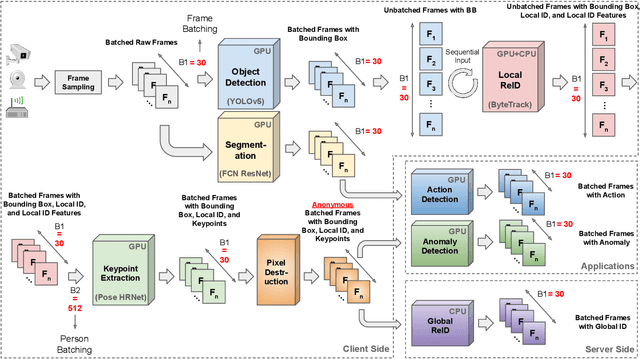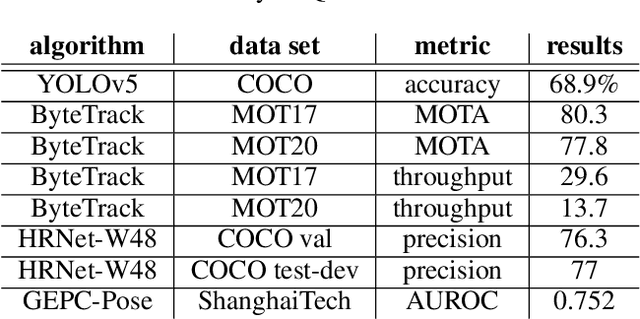Arun Ravindran
Understanding Policy and Technical Aspects of AI-Enabled Smart Video Surveillance to Address Public Safety
Feb 08, 2023Abstract:Recent advancements in artificial intelligence (AI) have seen the emergence of smart video surveillance (SVS) in many practical applications, particularly for building safer and more secure communities in our urban environments. Cognitive tasks, such as identifying objects, recognizing actions, and detecting anomalous behaviors, can produce data capable of providing valuable insights to the community through statistical and analytical tools. However, artificially intelligent surveillance systems design requires special considerations for ethical challenges and concerns. The use and storage of personally identifiable information (PII) commonly pose an increased risk to personal privacy. To address these issues, this paper identifies the privacy concerns and requirements needed to address when designing AI-enabled smart video surveillance. Further, we propose the first end-to-end AI-enabled privacy-preserving smart video surveillance system that holistically combines computer vision analytics, statistical data analytics, cloud-native services, and end-user applications. Finally, we propose quantitative and qualitative metrics to evaluate intelligent video surveillance systems. The system shows the 17.8 frame-per-second (FPS) processing in extreme video scenes. However, considering privacy in designing such a system results in preferring the pose-based algorithm to the pixel-based one. This choice resulted in dropping accuracy in both action and anomaly detection tasks. The results drop from 97.48 to 73.72 in anomaly detection and 96 to 83.07 in the action detection task. On average, the latency of the end-to-end system is 36.1 seconds.
Understanding Ethics, Privacy, and Regulations in Smart Video Surveillance for Public Safety
Dec 25, 2022



Abstract:Recently, Smart Video Surveillance (SVS) systems have been receiving more attention among scholars and developers as a substitute for the current passive surveillance systems. These systems are used to make the policing and monitoring systems more efficient and improve public safety. However, the nature of these systems in monitoring the public's daily activities brings different ethical challenges. There are different approaches for addressing privacy issues in implementing the SVS. In this paper, we are focusing on the role of design considering ethical and privacy challenges in SVS. Reviewing four policy protection regulations that generate an overview of best practices for privacy protection, we argue that ethical and privacy concerns could be addressed through four lenses: algorithm, system, model, and data. As an case study, we describe our proposed system and illustrate how our system can create a baseline for designing a privacy perseverance system to deliver safety to society. We used several Artificial Intelligence algorithms, such as object detection, single and multi camera re-identification, action recognition, and anomaly detection, to provide a basic functional system. We also use cloud-native services to implement a smartphone application in order to deliver the outputs to the end users.
 Add to Chrome
Add to Chrome Add to Firefox
Add to Firefox Add to Edge
Add to Edge